Concept explainers
(a)
Interpretation: The reagent required to convert the given compound into butanal is to be predicted.
Concept introduction: Diisobutylaluminiumhydride(DIBAL-H) is a selective reducing agent. It readily converts esters into
(b)
Interpretation: The reagent required to convert the given compound into butanal is to be predicted.
Concept introduction: The full form of PCC is pyridinium chlorochromate. It acts as mild oxidizing agent. It oxidizes primary alcohols into aldehyde and secondary alcohol into
(c)
Interpretation: The reagent required to convert the given compound into butanal is to be predicted.
Concept introduction: A stepwise procedure of transforming an
(d)
Interpretation: The reagent required to convert the given compound into butanal is to be predicted.
Concept introduction: In presence of ozone and
Want to see the full answer?
Check out a sample textbook solution
Chapter 21 Solutions
Package: Loose Leaf for Organic Chemistry with Biological Topics with Connect Access Card
- 24. What is the major product for the following reaction? Mg J. H.C CH H,C- Then H₂O OH Br C HO E HO H.C CH H.C- CH₂ CH₂ All of these are possiblearrow_forwardstructures. Explain why the major product(s) are formed over the minor product(s) using the Draw the major and product and the complete mechanism for all products with all resonance mechanism/resonance structures of the major and minor products in your explanation. HONO2 H2SO4arrow_forward#1 (a). Provide the expected product for the following reaction of A to B by indicating what the product is after step 1 (call this "81") and after step 2 (call this product "B2"). Give a complete mechanism for the transformation of compound A into compound B showing all intermediates, resonance structures, stereochemistry and electron movements 1. Et-MgBr 2. Me-Br B #1 (b). Compound A can be prepared in one step from an alkene starting material. Provide the structure a and the reaction conditions required to convert it to compound A The starting alkenearrow_forward
- The line formula for a branched alkene is shown below. 2 i. What is the molecular formula of this compound? Count number of C and H ii. How many carbon atoms are in the longest chain, ignoring the double bond? iii. What is the longest chain incorporating both carbons of the double bond? iv. How many substituents are on this chain? v. Give the IUPAC name for this compoundarrow_forwardgive the products for each of the followingarrow_forwardProvide the products and/or reagents for the following transformations. NaOMe HCl/EtOH OH NaOMe CI Show the product for the formation of the ketal given below for the transformation, showing all intermediates and resonance structures would be required to transform the ketal back to the starting ketone and then the mechanism What reagents/conditions HCI EtOH (excess)arrow_forward
- Make meta-dibromobenze from nitrobenzene using amine reactions. *see imagearrow_forwardProvide the structure of the expected major and minor (if any) products for each reaction. Clearly indicate stereochemistry where warranted. + + heat heat 이요 HNO3 1. AlCl3 2. H₂O H2SO4 1. AlCl3arrow_forward) Give the mechanism for the acid catalyzed hydrolysis of the following to the corresponding carboxylic acid. Show all intermediates and resonance structures N H+, H2O (excess)arrow_forward
- # 2. Drow full structures of the organic product expected in each of the following reactions. Draw the appropriate stereoisomer where warranted! Tos Cl O C NaCN PCC శ్రీ CI TSCI Pyridine H₂CrO4 PBrj Pyridine NaCNarrow_forwardPLEASE help. Locate a literature IR spectrum of eugenol. Insert the literature spectrum here: What conclusions can you draw about your clove oil from these IR spectra? I attached my data belowarrow_forwardplease help and the percent recovery of clove oil from cloves is 4.61% and i have attached my ir spectrum as well. Based on your GC data, how many components are in the clove oil? Calculate the percentage of each component. Clearly show your work. Which of the components corresponds to eugenol? How do you know? Is eugenol the major component?arrow_forward
 Chemistry: The Molecular ScienceChemistryISBN:9781285199047Author:John W. Moore, Conrad L. StanitskiPublisher:Cengage Learning
Chemistry: The Molecular ScienceChemistryISBN:9781285199047Author:John W. Moore, Conrad L. StanitskiPublisher:Cengage Learning
